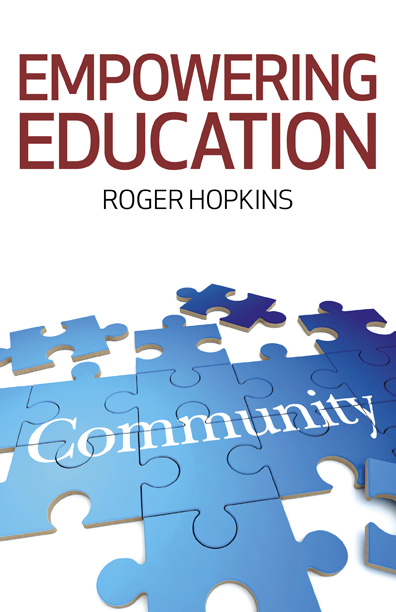Empowering Education
Discover how to enthuse ordinary citizens to work together to effectively change their communities for the better.

Discover how to enthuse ordinary citizens to work together to effectively change their communities for the better.
Discover how to enthuse ordinary citizens to work together to effectively change their communities for the better.
Aims & objectives, Education (general), Philosophy, theory & social aspects
This is a book about giving people power. It is written in a style that makes community development, adult education and collective action accessible to community workers, adult education tutors and students as well as committed citizens. The author, with extensive experience of adult education and community action, examines how teaching via logical discourse, storytelling, critical thinking - and the linking of the ideas of social theorists such as Freire, Alinsky and Gramsci with community concerns about the changes driven by neoliberal policies - can generate political awareness and collective change. By providing examples of group development processes, listening skills, constructive conversation, question posing, and group focused analyzes of community work problems, the author delivers an understanding of how educators and students can learn effectively together to stimulate insight, combat power structures, assess and realize community needs, manage conflict, generate leadership and work in partnership to implement successful regeneration strategies.
Click on the circles below to see more reviews
A book that I thoroughly enjoyed reading. Although this book is clearly for and about a specific community setting, it is much more than that. As Hopkins describes his interactions with his students, he brings in reflections drawn from a wide range of authors, and introduces his students to themes that are universal and comprehensive. From the detail of developing skills that can be applied in community development to the most insubstantial aspects of personal development, all human life is there, as it is in any flourishing community. Hopkins gives details of activities that he used with his classes, and relates discussions between the groups, so that it is possible to take from the book a range of activities that could be applied in any classroom for community development. However, this book is much more than a "How to do it" manual. Hopkins does not see education as something that is done; it is a process that is lived, with all that implies for reflective theorizing and critical examination, by opening up all aspects of community and development to discussion and debate. The book integrates a range of very broad theories, a number of practical exercises, and not least a description of some very moving impacts on those involved in a way that can probably only be adequately summarized in the word "praxis". This is a book that will be of value for those who engage professionally in providing education for community development, but might equally be of value to the individual who wishes to engage in the development of his or her community but is not lucky enough to have a teacher at hand ~ David Turner , Professor of Education University of Glamorgan Wales, Author of Theory of Education which won the World Education Fellowship Prize in 2006